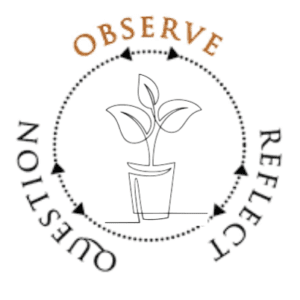Thinking about taking the TESOL certificate program online or in-person? Taking the TESOL certificate program is one of the stepping stones to becoming a more confident, clear teacher.
It is truly an investment in your future, but with so many different TESOL programs out there and so many steps to think about, getting started with TESOL can be an overwhelming task.
To help you break things down into more bite sized chunks, here are some steps to consider when both choosing a TESOL program and deciding if TESOL is the next step for you.
1) Volunteer before TESOL preparation
Many prospective TESOL participants are anxious because they have never taught before. If this is the case for you, you can relax.
Prior experience teaching is not a prerequisite for taking the TESOL course. Everything that you need to know about structuring, planning, teaching and reflecting on a class will be taught to you during your TESOL training course.
One step that you can take to make your TESOL experience more rewarding is to step into your community and look for volunteer opportunities which are connected to teaching. Many schools and universities are always looking for volunteers to work with their students.
You could volunteer to be a language exchange partner and meet with an international student to help them practice valuable conversation skills, or you could volunteer to be a tutor and help students with their writing and grammar skills. You can also look for opportunities with local scouting organizations, churches, senior centers or after school programs where you help to plan and lead activities.
This can be a helpful way to get a taste for teaching and facilitating activities with different people. It can also help you to decide which age groups you might be interested in working with.
2) Ask yourself, “What will I do after I complete my TESOL certificate program?”
Completing a TESOL certificate program will be the stepping stone to many wider career and travel opportunities.
Some participants take the course because they want to work while they travel to different countries. Others are interested in finding teaching positions that will help them build their career in the United States.
countries. Others are interested in finding teaching positions that will help them build their career in the United States.
What about you? Do you want to travel and teach, look for a permanent position teaching ESOL in another country, or find work in the United States and have the world come to you? If you are like me, and you are feeling undecided, don’t worry! You will gain valuable experience and insights from the program that will help you make up your mind. Your instructor will also be able to give you some hints about where and how to look for teaching opportunities. When I went into the TESOL certificate program at ILI, my main goal was to make changes to help me find a more rewarding career. My TESOL class was small, with just 3 participants, but by the end of our program, we had been given the tools we needed to move on in different directions. One participant was offered a teaching position at a school in Saudi Arabia, one participant decided to continue on with a master’s degree in TESOL through The School for International Training (SIT), and I began my teaching career in the United States at the International Language Institute of Massachusetts in their Intensive English Program, or IEP.
3) Find a TESOL certification program that’s right for you
With so many options available from both colleges, universities and independent institutions, the search for the best TESOL program for you can be overwhelming at first. Whether you choose a one month intensive TESOL program, or an extended 3 month part time course, there are a few steps that you can take to help you make your decision with confidence.
- First, research the school or institution where you would like to take the TESOL course. Visit their website and read about the program. Look for student success stories, or testimonials. Visit the staff directory and read about the instructors who will teach you. Find out if and through which institution your instructors are certified.
- Next, look for programs which offer both theoretical and practical knowledge, such as ILI’s TESOL Certificate course, which will give you hands-on teaching experience. It is important to have the opportunity to practice teaching in a controlled environment with instructors who can help you by not only reviewing your lesson plans and materials with you, but also by observing your teaching and giving you valuable feedback to help you improve your teaching. Look for programs which promote experiential learning, a philosophy based on the idea that teachers learn best by actually teaching and then reflecting on their experiences at the end of each teaching session as a way to prepare for their next lesson.
- Finally, contact any schools or institutions which you are seriously considering. Ask for a tour of the school, or to set up a time to meet online with one of the instructors before submitting your application. This is a great time to ask questions about the program, to introduce yourself, and to explain your goals. You can also ask for references, or to speak with former participants about their experiences both during and after the program.
4) Observe an ESOL Class to Prepare for TESOL certification
Observing veteran teachers working together with their students can be a great way to get a feel for what a future career in teaching ESOL might look like for you.
Take some time to search for language schools in your area and read about their programs on their websites. Contact the schools that look the most interesting to you and request permission to observe one of their ESOL classes for an hour or two. Your observation can take place in person, or via Zoom, or another video platform.
During your observation of the class, it’s important to think of yourself as a plant, or a piece of furniture in the room. You are not there to interact with the teacher or students, you are there to watch and listen. Bring a notebook with you and take notes.
piece of furniture in the room. You are not there to interact with the teacher or students, you are there to watch and listen. Bring a notebook with you and take notes.
What activities did the students participate in? What happened when a student didn’t understand something? What instructions did the teacher give?
At the end of your observation, you can reflect on the notes that you took and the time that you spent in the classroom. What was exciting or interesting about the class from your point of view? What seemed like it might be difficult for you?
Save your ideas and questions as reference when you are choosing your own TESOL programs. When you talk with your prospective TESOL instructor, you can tell them about your observation experience and ask them any questions that you have connected to their program or teaching methods.
5) Prioritize and Set Yourself Up for Success in your TESOL certification course
Taking a one-month TESOL training course is intense. Think of it as teaching boot-camp.
You will work through different reading materials, spend time observing other instructors, learn frameworks and structures for writing lesson plans and bond with your classmates. The course is a full time job with homework on the side.
If possible, arrange for time off or drastically reduced hours from your current employment to give you time to focus on your TESOL program. Think about the other obligations in your life and make some plans of how to balance chores, kids, pets, and your social life.
There are schools that also offer a part-time evening program for working people. If you can’t take time off to study in an intensive program, a part-time program just might be the answer for you. At the International Language Institute a popular alternative to the one-month intensive is a three-month program that meets two evenings a week and three Saturdays during the course.
TESOL preparation is a big time commitment, but it is also only a month. Most participants note that the time flew by once they dug into their program.
The TESOL program is a transformative experience. You will come out the other side with knowledge, communication skills and memories that will help you for the rest of your life, no matter what path your career takes you down.
6) Talk with Someone Who Has Taken the TESOL Course
Reading testimonials from other TESOL participants, or better yet, having the chance to talk directly with a former participant can be a great way to understand what the program will be like from the student perspective. When you contact schools to ask about their programs, you can ask if it is possible for you to contact a former TESOL participant of theirs to ask them about the program.
Before e-mailing or chatting with the participant, it will be important to brainstorm a list of questions or talking points, such as:
- Why did you decide to take the TESOL course?
- What was challenging about taking the course?
- What was rewarding for you?
- What surprised you about your TESOL certification course?
- What tools and techniques from your TESOL program did you apply to your teaching?
- How did the TESOL program give you opportunities to put the theory into practice?
- Did you get to teach hands-on practice classes with instructor and peer feedback?
From a brief interview of 20 minutes, you will be able to find out a lot about their experiences with and their advice about both the TESOL certification program and learning how to teach.
Final Thoughts on TESOL Certification
When you’re an aspiring new teacher or an experienced classroom veteran, TESOL certification is sure to provide useful tools and approaches to creating a dynamic student-centered ESL classroom community.
If you decide to become a professional ESOL instructor, TESOL certification will prove to be a gift that keeps on giving.
Written by Janelle Rivers
